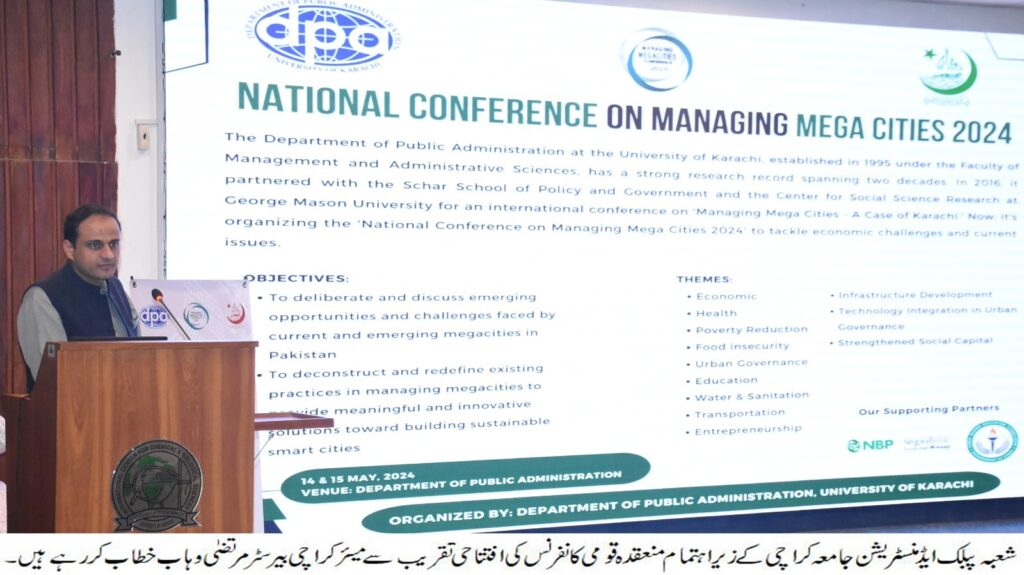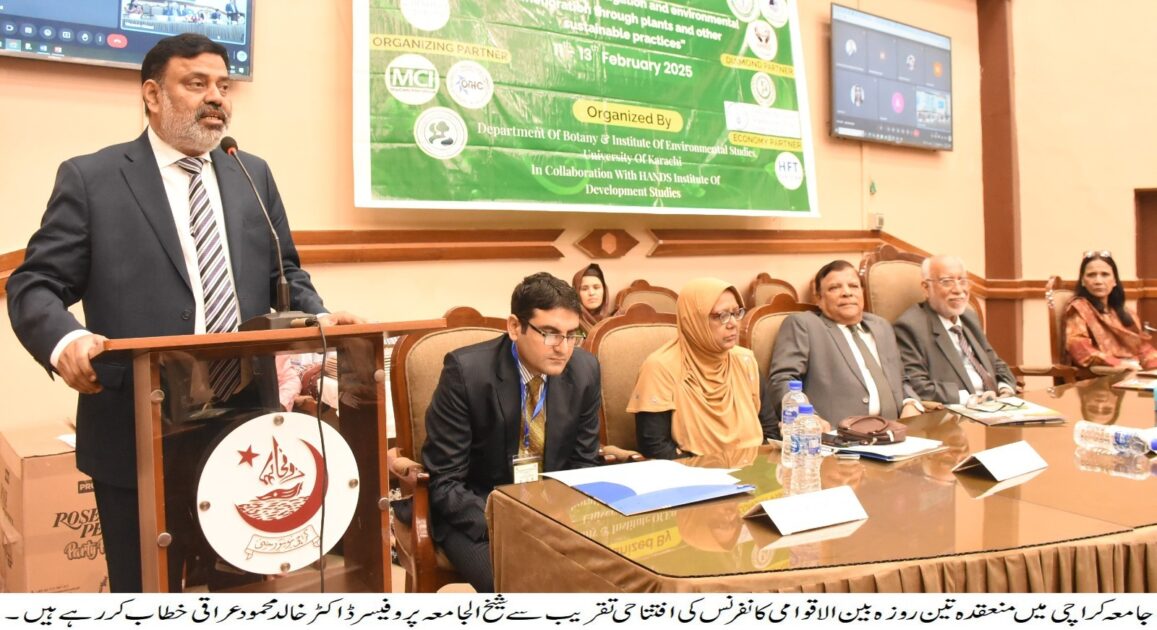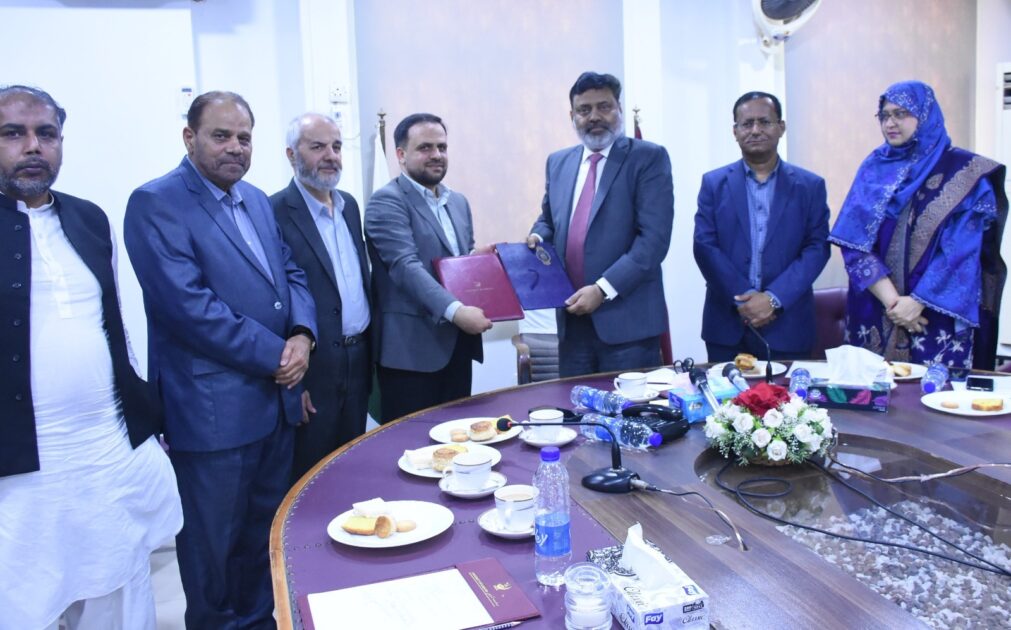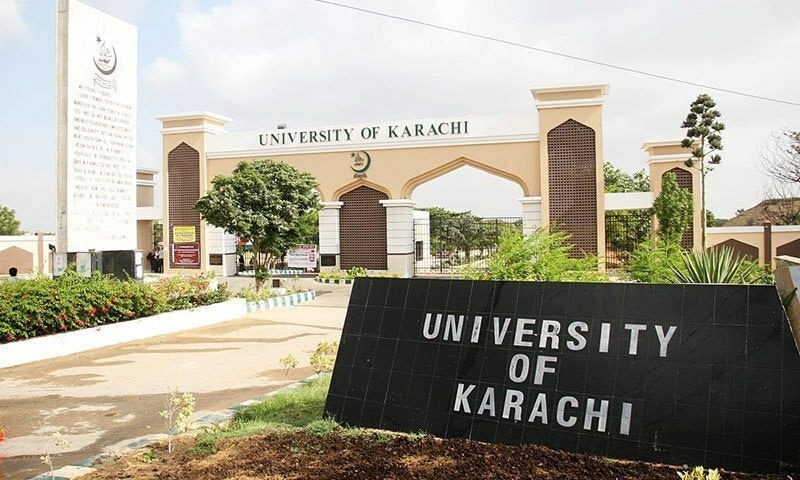- Web Desk
- Jul 09, 2025
KU National Conference on managing megacities aims to foster sustainable urban development
-

- Web Desk
- May 15, 2024

The Department of Public Administration of the University of Karachi organized a two-day national conference on ‘managing megacities at the Prof. Salimuzzaman Siddiqui Auditorium of the KU’s International Center for Chemical and Biological Sciences.
The two-day NCMMC–2024 aims to address economic challenges and foster sustainable urban development in megacities. During the first day of the conference, speakers and scholars deliberate on emerging opportunities and challenges in Pakistan’s megacities. They urged to redefine city management practices for sustainable smart cities and asked the authorities concerned to provide a platform for young scholars, researchers, and professionals to connect and strengthen research in Pakistan.
On this occasion, the Mayor Karachi Barrister Murtaza Wahab while addressing the first day of the NCMMC on Tuesday said that Karachi is the economic hub of Pakistan, but managing and running Karachi is a difficult task and it is also very difficult for a common man to understand it.
He informed the audience that managing the population of Karachi is a big challenge. “I have to take care of millions of people in running the affairs of the city and the biggest challenge is the lack of resources.”
Barrister Murtaza Wahab mentioned that we don’t know the actual population of Karachi and according to the census the population of Karachi is 20.30 million but none of us believe it, and when you don’t know the population then how could you get the resources from the government.
He shared that Karachi is a mini Pakistan and an economic hub and we pay the highest tax in the country. The citizens of Karachi pay taxes to FBR and the Sindh Revenue Board but do not pay municipal tax. The KMC hardly gets Rs200 million whereas Mumbai, the largest city in India, receives an amount equivalent to Rs55 billion Pakistani currency per year in property tax and Rs19 billion as municipal tax.
The Mayor of Karachi Murtaza Wahab expressed that when Karachi is compared to Mumbai, there is a world of difference as there is a huge difference in taxes between Karachi and Mumbai. He further said that the focus of this conference should be that the citizens of Karachi pay municipal tax and consider it as their responsibility.
He observed that if people did not start paying tax then it would be difficult for the government institutions to perform. Murtaza Wahab said that we have to forget political differences and promote a culture of dialogue.
He shared that this is so unfortunate that the government is not allowed to work in our country if you belong to another political party. He believes that the city government of Karachi needs economic resources for the development of the mega city and mentioned that our opposition parties are creating obstructions. We need to educate our political parties to think beyond their political ideology and focus on the interests of the city.
The KU Vice Chancellor Professor Dr Khalid Mahmood Iraqi said that the population of Karachi is in the millions and is so diverse that we should feel proud of it. He shared that the problems of Karachi should be seen and understood from a new angle.
He expressed that in today’s rapidly urbanizing world, managing megacities presents a myriad of challenges and opportunities. He said that this conference would serve as a crucial platform for researchers, industry experts, and policymakers to come together to find solutions to the problems.
He acknowledged that the provincial government is giving a lot of support to the universities of Sindh. A renowned singer and social activist Shehzad Roy said that even though Karachi is the economic hub of the whole of Pakistan, it suffers from long-standing problems. In the country, teachers are allowed to teach without a teaching license at the public and private levels, which is a very serious matter.
The Dean of the Faculty of Architecture and Sciences of the NED University of Engineering and Technology, Karachi, Professor Dr Noman Ahmed said that after the British conquest in 1839, Karachi evolved due to the business and trading potentials. He mentioned that Karachi’s progress, growth, and development have been affected due to inappropriate development choices, lack of maintenance of infrastructure, and breakdown of municipal services and capacities.
He observed that Karachi continues to ‘benefit’ from projects, and packages without plans. Some examples are the prime minister’s package, the Khushhal Pakistan Programme package, and the Karachi Transformation package. He mentioned that all are vague allocations aiming to obtain credit for performance. The urban planning is not instituted for several reasons.
“Many expensive projects are being undertaken in a completely isolated manner, BRT (over Rs170 billion), K-IV (over Rs125 billion), S-III (over Rs42 billion) and KCR (over Rs300 billion) are few examples.”
Earlier, the conference coordinator Dr. Ammad Zafar shared that we had received a total of 125 research papers from the country, out of which 108 papers were approved, and some of them will be presented on the second day of the conference while all of them will be published in a journal.
He mentioned that the KU DPA organized two pre-conference workshops to develop research capacity building in which participants from 25 different universities learned how to conduct research and utilize tools.
The in-charge of the KU DPA Dr Saima Akhtar shed light on the aims and objectives of the two-day national conference. A DPA faculty member Dr Tehmina Faisal was the coordinator of the first day of the two-day national conference.




